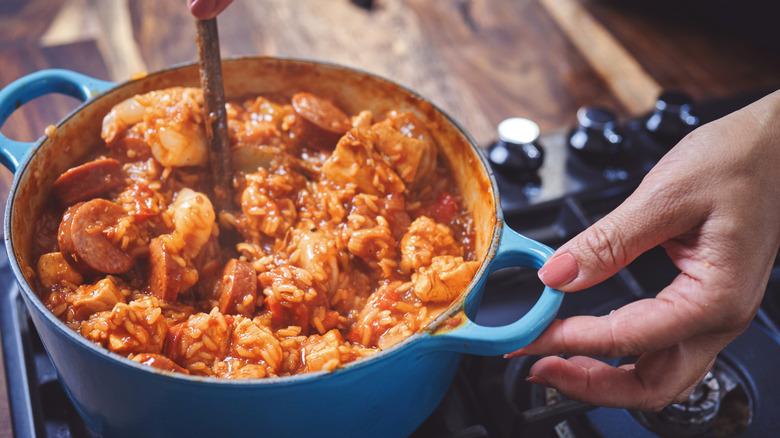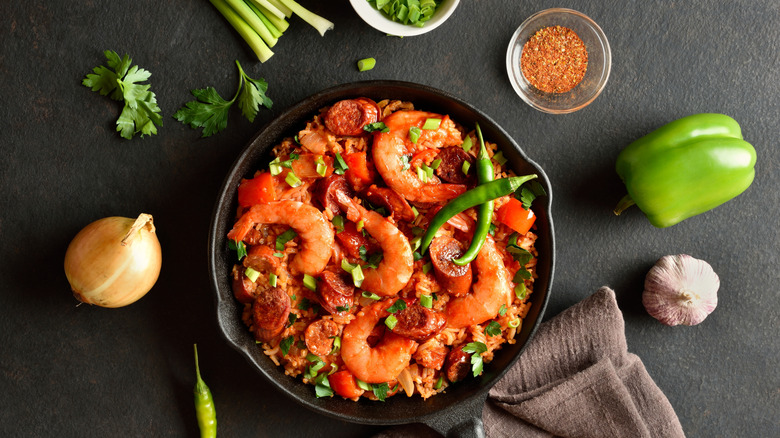The Simple Mistake That's Ruining Your Jambalaya
We may receive a commission on purchases made from links.
New Orleans-based Creole and Cajun cuisines have no shortage of delicious and iconic dishes, including stews like gumbo and jambalaya (which are, in fact, different). Jambalaya is basically a party in a pot, a mixture of meats, seafood, veggies, spices and rice that draws from different regional influences. Anyone with Louisiana roots probably has their own family recipe for jambalaya, but this one-pot dish is straightforward enough for everyone to try their hand at making.
The key to crowd-pleasing jambalaya is in its texture, which usually comes down to the all-important rice. If your jambalaya comes out undercooked, you may be making one of the common mistakes that get in the way of perfectly cooked rice. To help us avoid this pitfall, Chowhound spoke to Eric Cook, the executive chef and owner of Gris-Gris and Saint John in New Orleans. A decorated chef and native of the famed food city, Cook has plenty of expert insight into Creole cuisine. "When cooking a jambalaya," he says, "most folks like to keep opening the pot to check if the rice is cooked. Don't be that person — put the lid on and leave it alone," he advises. "Nothing ruins a great dish like uncooked rice."
More insider tips for next-level jambalaya
Under- or unevenly-cooked rice might be the biggest issue dragging down your homemade jambalaya, but it's not the only factor you have to look out for. Overcooking proteins and under-seasoning the dish can result in a badly textured, tasteless mess. Creole and cajun cooking is all about highlighting bold flavors, so it's important to bring them out in your jambalaya. "A good Creole seasoning is essential," Eric Cook says. "Not too much heat, but plenty of flavor." Though the cuisines are subtly different, Creole seasoning is often used interchangeably with Cajun seasoning. We didn't get a specific recommendation from Cook. However, you may want to try a blend that many Louisianans call the "gold standard," Tony Chachere's Original Creole Seasoning.
Selecting and perfectly cooking your proteins is also crucial to the jambalaya experience. According to Cook, your options are plenty, and "can range from chicken to pork to beef to wild game — essentially whatever you have laying around," he says. Andouille sausage is a popular addition, as are shrimp and other kinds of seafood commonly found in New Orleans. However, "the pro move is pork cheeks," chef Cook says. "Trust me, it's the game changer."

